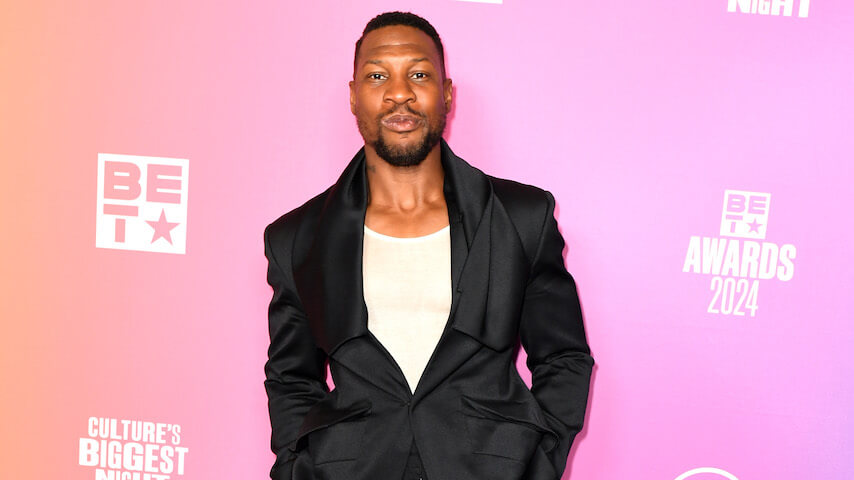The Late Night TV Industry is Changing: The Success of Colbert

Introduction
At the TV Academy's Hall of Fame, late night TV host Conan O'Brien made a controversial statement, declaring that the late night TV industry is dying. However, he also had high praise for his colleague Stephen Colbert, calling him 'too talented and too essential to go away.' This sparked a debate among fans and industry professionals about the state of late night TV and the role of its hosts.
Key Details
O'Brien's statement is not without merit. The late night TV landscape has certainly changed in recent years, with the rise of streaming services and the decline of traditional television viewership. This has resulted in a decline in ratings for late night talk shows. However, Colbert has managed to stay on top and maintain a strong following with his unique blend of comedy and political satire.
Colbert's success can be attributed to his versatility and adaptability. He seamlessly transitioned from his satirical character on Comedy Central's The Colbert Report to his current role as host of The Late Show on CBS. He has also been able to use his platform to address important social and political issues, making him a vital voice in the current media landscape.
Impact
O'Brien's statement and Colbert's success highlight the changing nature of the late night TV industry. While traditional talk shows may be declining, Colbert's ability to stay relevant and engage with current events
About the People Mentioned
Stephen Colbert
Stephen Colbert is a renowned American comedian, actor, and television host. Born on May 13, 1964, he initially gained recognition as a correspondent on Comedy Central's "The Daily Show" from 1997 to 2005. During this period, he contributed to the show's numerous Emmy and Peabody Awards wins. One of his notable segments was "This Week in God," where he humorously reported on theological topics. In 2005, Colbert launched "The Colbert Report," a satirical news program that parodied conservative pundits, particularly shows like "The O'Reilly Factor." The show became a huge success, catapulting Colbert to full celebrity status. His appearance at the 2006 White House Correspondents' Association Dinner further solidified his reputation for sharp political satire. He also authored several best-selling books, including "I Am America (And So Can You)" in 2007. In 2015, Colbert succeeded David Letterman as the host of CBS's "The Late Show with Stephen Colbert." Initially, the show faced challenges in finding its footing, but it eventually rose to the top of the ratings, particularly after Colbert began focusing on political humor related to the Trump administration. He hosted the 69th Primetime Emmy Awards in 2017 and has won numerous awards, including nine Primetime Emmy Awards and two Grammy Awards. Colbert continues to be a significant figure in American television, known for his witty commentary and satire. He has also been involved in various other projects, including providing voice work for animated films and co-authoring books. His work has earned him recognition as one of Time's 100 Most Influential People in 2006 and 2012.
About the Organizations Mentioned
TV Academy
The Television Academy, officially known as the Academy of Television Arts & Sciences (ATAS), is a prominent nonprofit trade organization dedicated to advancing the television and broadband screen entertainment industry[2][3]. Founded in 1946—just as network television was emerging—by Syd Cassyd, the Academy was established to foster dialogue among industry professionals and later became synonymous with the Emmy Awards, which it administers to recognize outstanding achievements in television[1][3][5]. Today, the Academy boasts over 26,000 members nationwide, organized into 31 professional peer groups representing a broad spectrum of roles, from performers and producers to directors, technicians, and executives[2][6]. ## Mission and Activities The Academy’s mission is to promote creativity, diversity, innovation, and excellence in television through recognition, education, and leadership[1][2]. Its most visible role is overseeing the Emmy Awards, which celebrate excellence across genres and have become a global benchmark for quality in television[1]. Beyond awards, the Academy runs educational initiatives such as the Summer Internship Program and the Oral History Project, which preserve television history and provide hands-on industry experience for emerging talent[1]. The organization also cultivates leadership and offers professional development opportunities, reinforcing its role as a vital platform for both established and aspiring industry professionals[1][2]. ## Governance and Structure Governed by a Board of Governors—comprising two elected representatives from each peer group—the Academy’s leadership is supported by an Executive Committee and numerous specialized committees that manage activities, budgeting, strategy, and award show production[2][6]. Day-to-day operations are handled by a professional executive staff, ensuring the Academy’s initiatives and programs are executed efficiently[2][6]. The current leadership includes Chairman and CEO Frank Scherma, with a team of industry veterans guiding the organization’s strategic direction[7]. ## History and Evolution The Academy’s history reflects the evolution of television itself. After its founding in Los Angeles
Comedy Central
## Overview Comedy Central is a premier American cable television channel dedicated to comedy programming, offering a mix of original series, stand-up specials, and syndicated reruns[2][3]. Headquartered in New York City, it has become a cultural touchstone for American humor, launching the careers of numerous comedians and producing some of the most influential comedy shows of the past three decades[5][6]. ## History Comedy Central’s origins trace back to the late 1980s, when two rival networks—HBO’s The Comedy Channel and MTV Networks’ HA!—launched within months of each other, sparking a fierce battle dubbed “The Comedy Wars”[1][2]. Both channels struggled initially, but after two years of competition, they merged in April 1991 to form CTV: The Comedy Network, which was soon renamed Comedy Central to avoid confusion with a Canadian broadcaster[2][4]. The merger combined HBO’s focus on original programming with HA!’s strength in sitcom and sketch reruns, creating a more robust and appealing lineup[2]. ## Key Achievements Comedy Central quickly distinguished itself with breakthrough original content. *Mystery Science Theater 3000* became an early cult hit, while the late 1990s and early 2000s saw the launch of *South Park*—a groundbreaking animated series that remains a flagship property—and *The Daily Show*, which redefined political satire and launched the careers of Jon Stewart, Stephen Colbert, and Trevor Noah[1][6]. Other notable shows include *Chappelle’s Show*, *The Colbert Report*, and *Tosh.0*, each contributing to the network’s reputation for edgy, innovative comedy[3][6]. The channel has also been a platform for stand-up comedians, hosting countless specials and fostering new talent. ## Current Status Today, Comedy Central is owned by Paramount Global (formerly
CBS
CBS, originally founded in 1927 as the Columbia Broadcasting System, is a major American media company known primarily for its commercial broadcasting, television production, and publishing activities. It began as a radio network established by talent agent Arthur Judson but was soon acquired by William S. Paley, who transformed it into a dominant force in radio by leveraging advertising revenue through large audiences[1][5]. CBS expanded into television early, launching experimental broadcasts in 1931 and pioneering the first color TV broadcast in 1940 from its Chrysler Building transmitter in New York City[1][2]. The network became a leader in television entertainment and news through the mid-20th century, with iconic programs and personalities such as Ed Sullivan, Lucille Ball, and Walter Cronkite contributing to its popularity[3]. CBS also innovated in network news with the Columbia News Service, led by Edward R. Murrow, which established its reputation for serious journalism in the 1930s and 1940s[2]. Throughout its history, CBS diversified into related sectors like recording (Columbia Records) and publishing but eventually refocused on broadcasting and entertainment. It underwent several corporate transformations, including a merger with Westinghouse Electric Corporation in 1995, adoption of the CBS Corporation name, and acquisition by Viacom in 2000. After splitting from Viacom in 2005 and operating independently, CBS re-merged with Viacom in 2019 to form ViacomCBS, which was renamed Paramount Global in 2022. In 2025, CBS became the flagship network of the newly formed Paramount Skydance Corporation following an $8 billion merger with Skydance Media[3][4]. Today, CBS remains a key player in American media, known for its broad programming reach, influential news division, and historical significance in radio and television innovation. Its long-standing presence and adaptability in business and technology make it a cornerstone of the broadcasting industry. CBS’s leadership under President and CEO George Che















